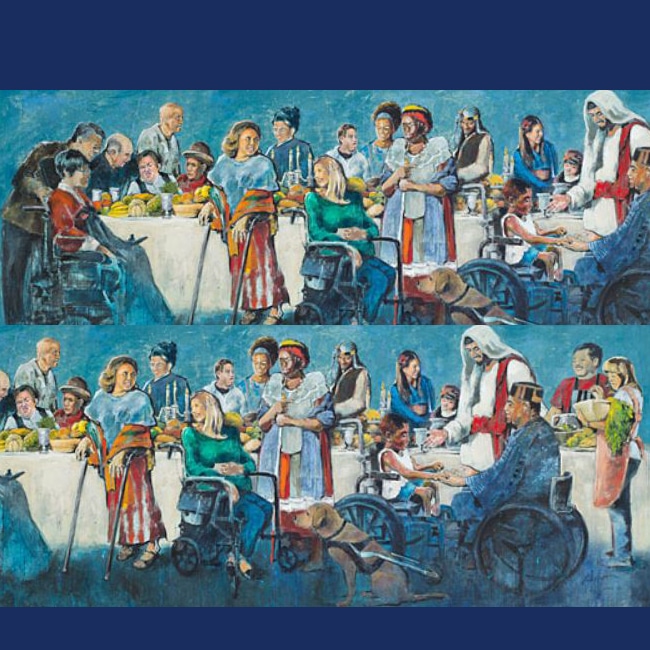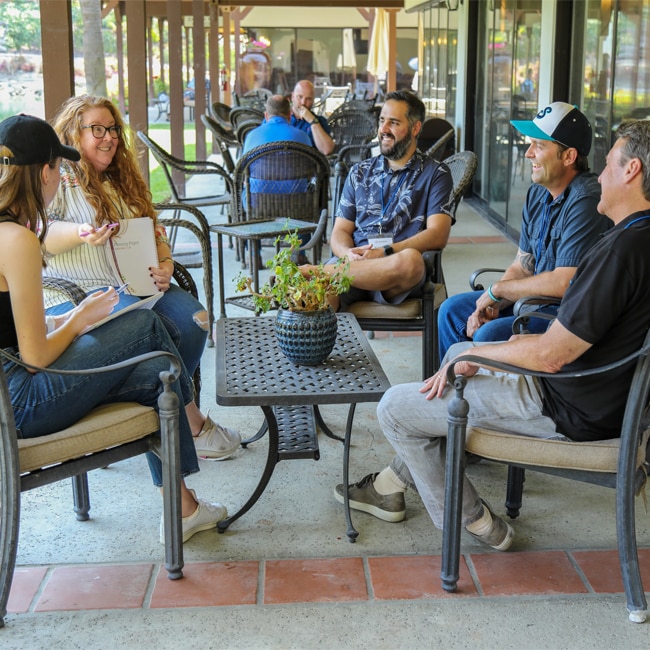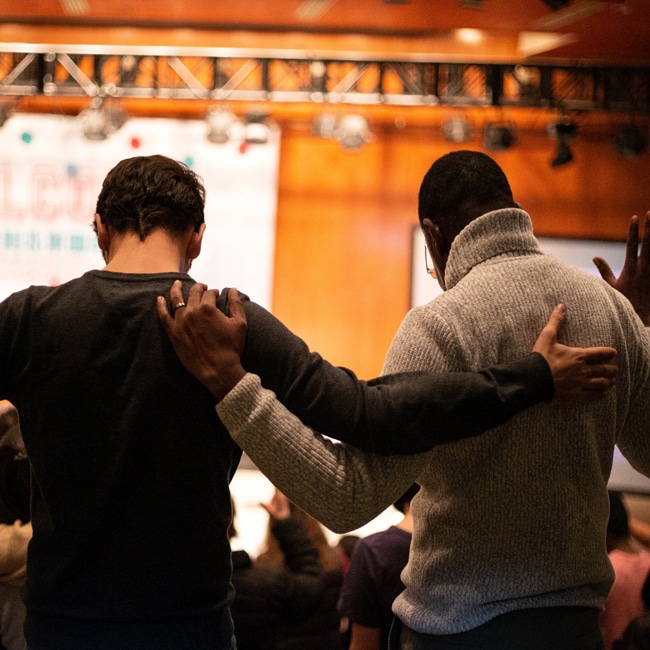The King’s Table: Why Disabilities Ministry In the Church Matters
The King’s Table: Why Disabilities Ministry In the Church Matters
-Cameron Horner-
The question of “why”, is a powerful question. It reveals motivations, loyalties, priorities, and it reveals biases. On the other side, if you can answer the question of “why” for a person, you can potentially motivate them to great change! As we approach the topic of disability in the church, considering ministry to, among, and with the disabled, “why” must be among the first questions asked. Why does a Church need to have a ministry that is to, for, or with the disabled?
The first and most pressing reason is one that has to do with obedience to Jesus! One does not need to look far into the Gospels to see the priority that Jesus gave to people with disabilities. As the great physician, he was able to do things that many of us may not be able to: Jesus restored bodies to wholeness and health in a time and place where to be disabled was to be a social and economic outcast. But we can import the emphasis of Jesus’ healing ministry into the various ministries that our churches engage in. Whereas the church has deemphasized people with disabilities or has gone about ministering to the disabled population inappropriately at times, Jesus understood and cared for the greatest needs of this community and prioritize them to the point of making them among his most sought-after audience. Consider the following passage from Luke 14, “…when you host a banquet, invite those who are poor, maimed, lame, or blind.”[1]
The above scripture was spoken in response to a host who had invited several people to a party, among whom was Jesus and a person with a disability. We would be right to question why the person with the disability was invited. At the beginning of the chapter, we are informed that the other Pharisees at the party were closely watching Jesus. In response to their prying observance, Jesus heals the disabled person and sends him away. Why was the person with the disability at the table of the Pharisee? Because Jesus immediately sends them away, we can perhaps surmise that the disabled person was invited to test Jesus. But Jesus does not fear the Pharisee’s test and subverts their priorities by telling the host who he really should invite to his next party: the poor and the disabled. Jesus, then shares a parable in which a king prepares a banquet, inviting all the standard guests. However, these guests turned down the invitation, and the king instead invites the poor and disabled to his table. One point of this parable is that Jesus is instructing his followers on who to prioritize and who to welcome to the table. The poor and the disabled.
You see, the Pharisee did what all too many churches do in their attempt to minister to the largest number of people. As the church, we create a product of sorts, one that we hope will be bought by the largest number of people. The time and effort going into this product often leaves little room for the people that Jesus prioritized. The all-powerful budget follows our priorities, and if we learned from the ministry and parables of Jesus, we too would subvert these priorities and welcome the poor and the disabled to our table.
Obedience to Jesus must be our primary concern, but a second “why” has to do with the issue of diversity. Here is a nugget that I hope will be worth the price of admission to this blog. As you wade into the topic of disabilities, it will be a much easier conversation to understand if you move disabilities out of the realm of a medical malady, and instead understand them as an issue of diversity. When a group of people is overly monolithic there will inevitably be blind spots, missing gifts, perspectives that they will never have the opportunity to consider, and ultimately, the group as a whole will be somewhat anemic. In the West, we know this a bit more intuitively than perhaps generations in the past have. You must understand, people with disabilities bring perspectives to the table that able-bodied people do not bring. Many of these perspectives come from suffering that is brought about by disability; some of these perspectives come from being in a place of greater dependent due to a disability; and some of these perspectives come from being a part of a class of people that are often overlooked and are seen as antithetical to the desirable human figure. These perspectives and other gifts need to be in the church if we are to be a full body. Broken bodies can help Christ’s body be more whole.
To thoughtfully and prayerfully consider the question of, “why,” is a powerful question that plumbs the depths of motivation for what we both do and do not do in our lives, institutions, and churches. In response to the question of, “why disability ministry,” the answer is at least twofold: First, it is an issue of obedience to Jesus, and second it is an issue of much-needed diversity within our places of worship representing the entire Body of Christ.
[1] Luke 14:13 (CSB).
*The main image artwork on the website is from Hyatt Moore, “The Parable of the Great Banquet” from Luke 14:15-25






